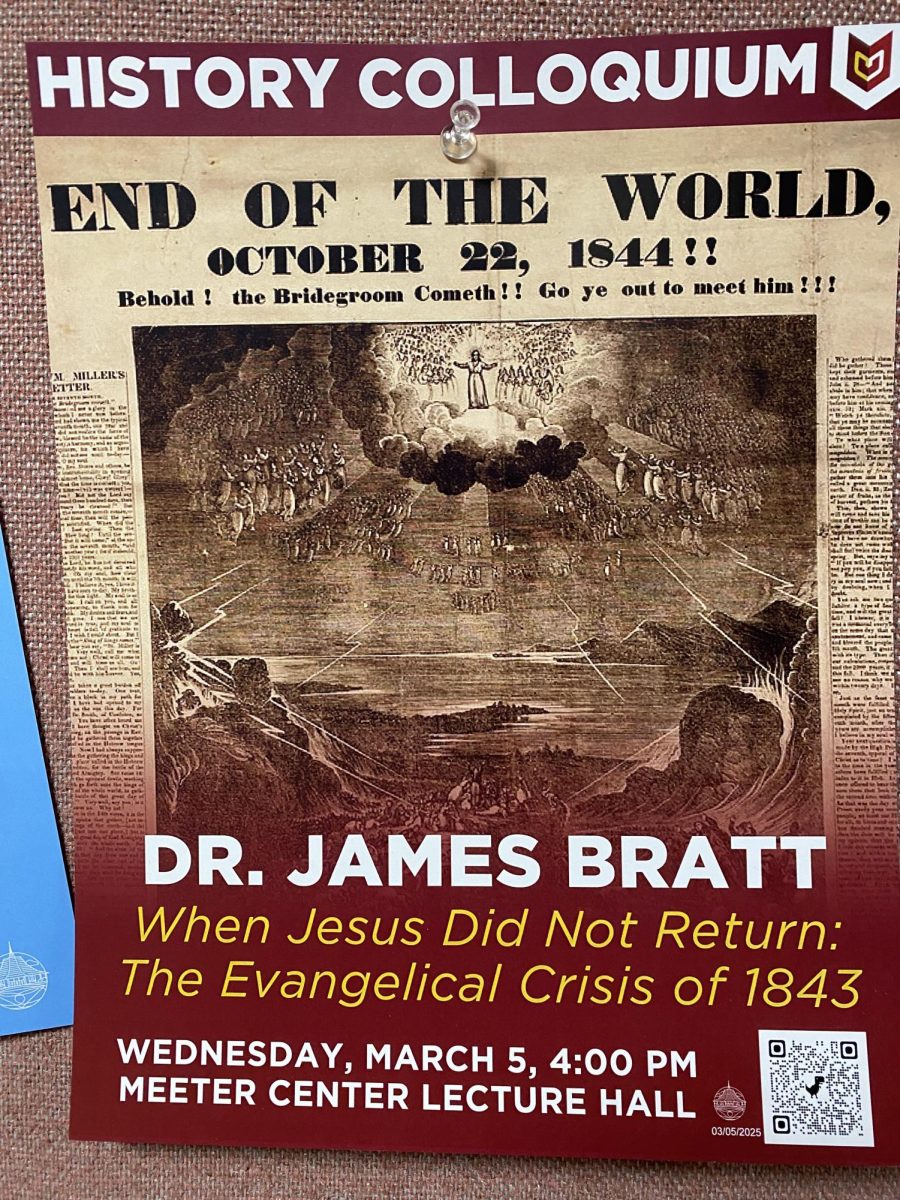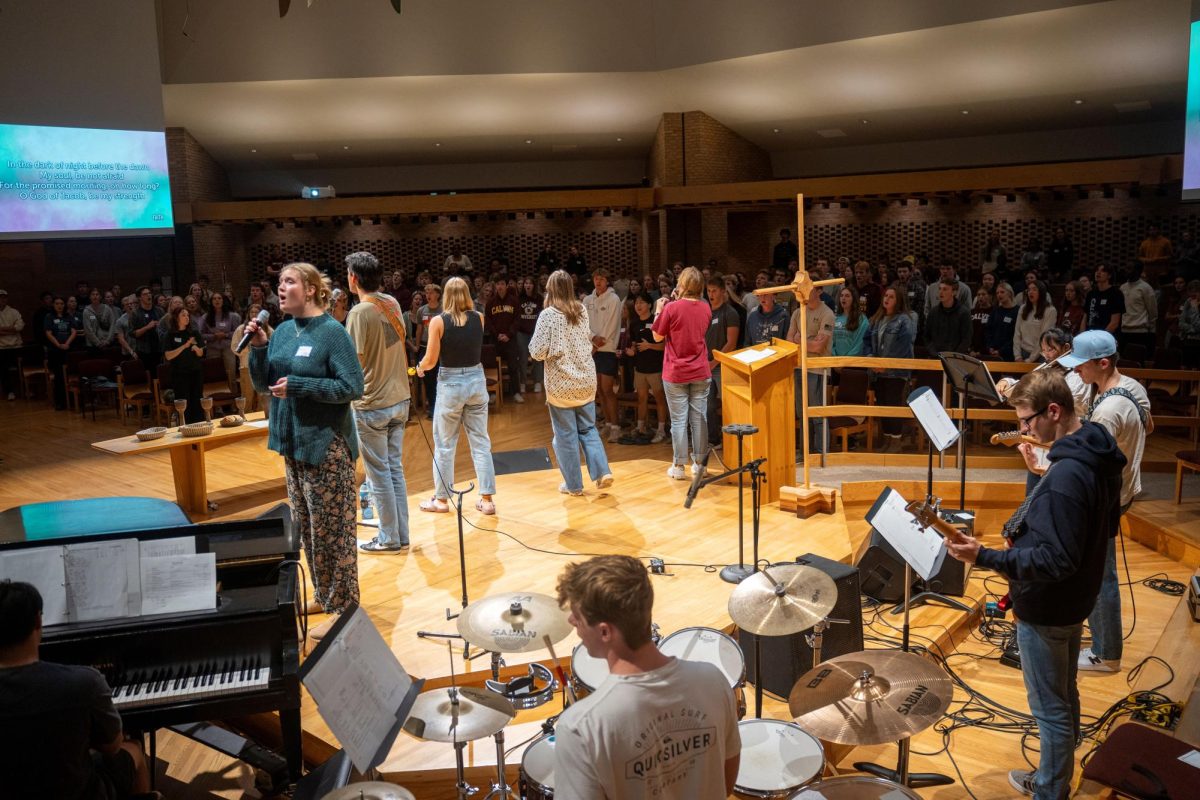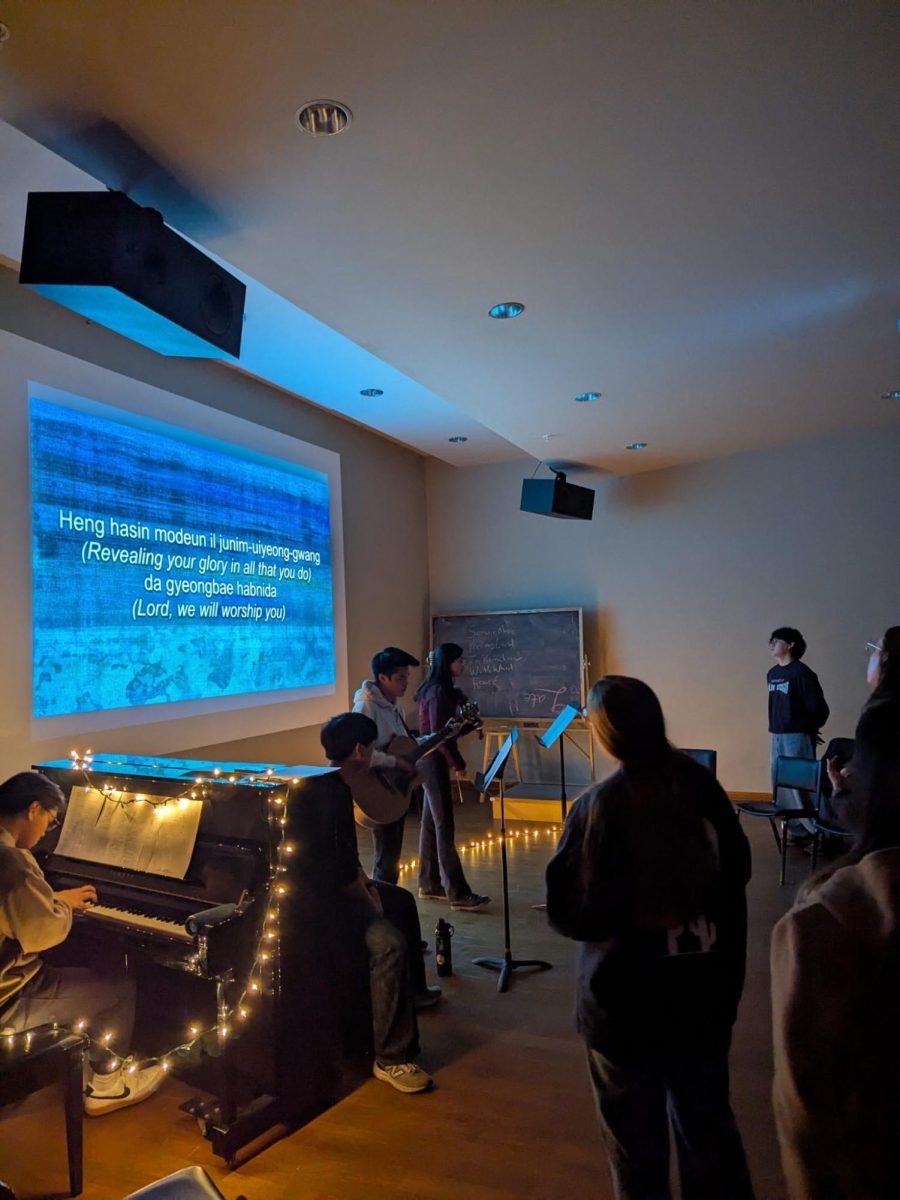The fourth of the Ten Commandments — Sabbathing — is a well-known Biblical command, but not a well-practiced one. In the midst of Calvin’s busy Western lifestyle, how can we obey the Exodus 20:8 command?
What is the Sabbath?
Dr. Irene Kraegel, director of the Center for Counseling and Wellness, describes resting as “giving up our to-do list for a while.” Pastor Mary Hulst agreed, saying that “there is a letting go and a surrender in the act of resting. . . surrendering that even if [we] don’t get everything done, it’s going to be okay.”
Kraegel feels that resting is exemplified best in the practice of “just being creatures in God’s world for a little while.” Kraegel used the examples of two biblical characters, Martha and Mary, from Luke 10. She believes that taking a step back from the Martha role of productivity and moving into the Mary role of resting in the Lord is where our cup is truly filled.
Hulst believes we should obey the Sabbath simply because God calls us to do so, but she doesn’t believe we are called to Sabbath without cause. “We’re better humans when we rest,” Hulst explained. “Our brains work better, our bodies work better, relationships are better, all of it.”
Provost Noah Toly said he sees that the purpose of Sabbathing is “to teach you that the God who could take care of Egypt can take care of Monday, too.”
When we obey the Sabbath mandate, we are reminded that we are not in control. “God is in control, and it’s one more act to remind ourselves that he is sovereign and we are not,” Hulst told Chimes.
Idolizing Productivity
Grace Hsu, a graduate speech pathology student at Calvin and a self-proclaimed representative of the Type A personality, feels that “it’s very tempting for me to find my identity in what I do and what I can accomplish everyday.”
While Hsu makes sure to prioritize the Sabbath, others of us do not make the time to do so. As a result, Hulst believes that in an academic environment, productivity has the potential to become an idol.
Toly says that “the busier you are, the more you need [the Sabbath]. And it’s not only because you need the rest more — it’s because you need the things that Sabbath teaches you.”
When we choose not to Sabbath, we are likely to feel the effects in all aspects of our health. Kraegel emphasizes just how important rest is for our mental health, saying that “I think so much of [the] anxiety that college students experience in the college and university years often has to do with just being too busy.”
Although anxiety is a common response to high stress levels, Kraegel suggests that “we all have areas of vulnerability with mental health,” and therefore, high stress may result in depressive symptoms or any other mental vulnerability. However, Kraegel says that “God created us with these innate systems of feedback” and if we really pay attention to our bodies, we will recognize the physical symptoms that show us why we were created to rest.
Practicing the Command
Hsu, though now in the graduate program, has been passionate about her commitment to Sabbathing since the beginning of her freshman year. For her, to Sabbath is to take a break from homework, a term she has coined “Homework Sabbath”.
Hsu has only added an hour of homework into her Sundays a few times throughout her entire college career. She is so committed to the Biblical command because, for her, “it just fills me so much. . . I feel like my week would fall apart if I didn’t have it.”
In order to practice the Sabbath, Hulst refers to author Marva Dawn’s structure for Sabbathing: “it includes ceasing, resting, embracing, and feasting.” When we Sabbath, Hulst said, we should ask ourselves these questions: What am I putting down? In what ways am I resting my body? Am I investing in my relationships, both with those around me and with the Lord? Am I feasting at the communion table or saving special things for only Sundays?
For Kraegel, resting includes a bit of alone time, another portion of time spent with those around us — a reminder that “we’re part of this whole system of people. . . we’re not alone in the world” — some form of movement and taking some time to disengage from our busy lives. While this will not look the same for everyone, a personalized and intentional format of these factors will lead to rest and nourishment for each of us on the individual level.
In the midst of our busy lives, there are active steps that can be taken towards finding our own way to practice the Sabbath. Hsu recommends that students should try out the Homework Sabbath for themselves — it’s difficult to eliminate all productivity, so starting with putting aside a day to let go of our stress is a step in the right direction. Hulst suggests to “find a Sabbath buddy if you don’t have one,” as “it’s a lot more fun,” and Kraegel feels that having a friend along on the journey adds a layer of accountability as well.
Exodus 20:8 says “‘Remember the Sabbath day by keeping it holy,’” and it is our duty to carry out this calling in our own lives — however that may look on the individual level.






